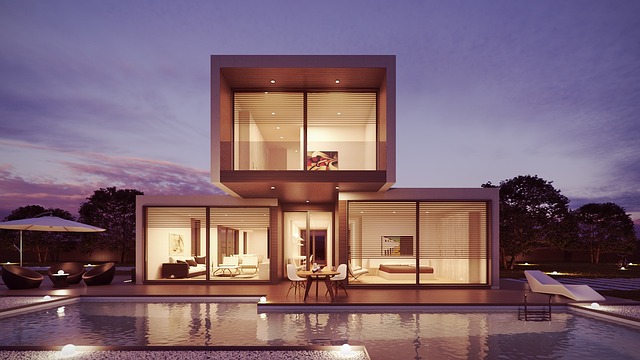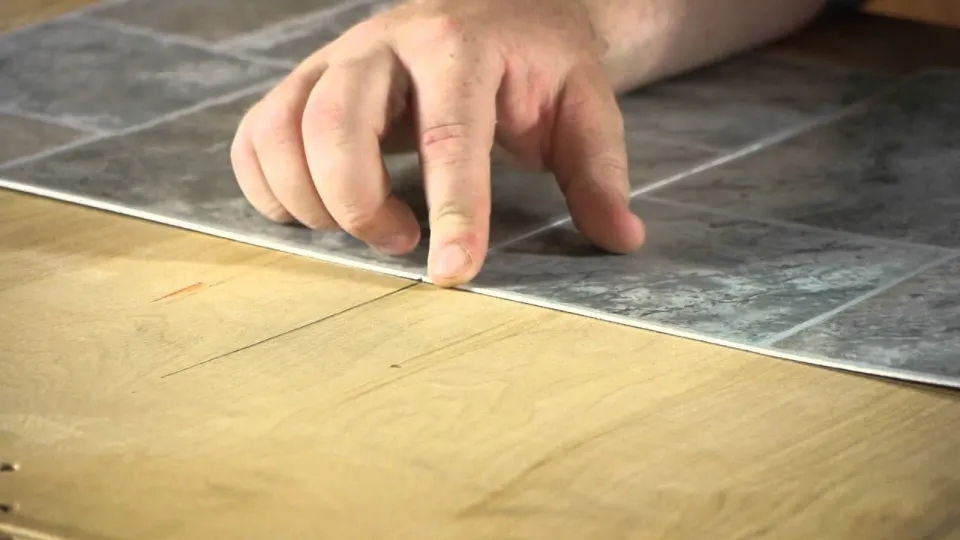Your house may appreciate as a result of a home addition. There are many good reasons to extend your property, whether you want to add a bedroom or increase the size of your living room. It will also give you more space.
In the UK, prices rise as you move further south, with London having the highest costs. Along with a host of other considerations, such as whether you want a single-story addition or a conservatory, the project’s scope will also affect how much you ultimately spend.
The cost of materials and labor rates are additional factors to consider. Keep in mind that the prices in this guide do not include VAT and will always clarify where a sum includes cost of labour and materials, and where the price is referring to them separately.
How Much Does An Extension Cost?
The price of an extension can vary greatly depending on its size and intended use, among other things. Extensions that are smaller and simpler are typically more affordable.
The table below shows the estimated cost of building a single-storey extension, either on a budget or using luxury materials:
| EXTENSION SIZE | BUDGET OR MID-RANGE EXTENSION COST | LUXURY EXTENSION COST | TIME REQUIRED |
| Small Single-storey Extension (20 sqm) | £30,000 to £44,000 | £46,000 to £50,000 | 8 to 10 weeks |
| Medium Single-storey Extension (30 sqm) | £45,000 to £66,000 | £69,000 to £75,000 | 10 to 12 weeks |
| Large Single-storey Extension (50 sqm) | £75,000 to £90,000 | £110,000 to £125,000 | 12 to 16 weeks |
Building a single-story addition typically costs between £1,500 and 2,500 per square meter. If you have a small or moderate budget, you should allocate between £1,500 and £2,200 per square metre (excluding VAT) for your extension.
If you have more room in your budget, you should be prepared to spend up to £2,300 per square metre (not including VAT) to construct a luxurious single-storey addition.
These costs include the cost of constructing the extension’s outer shell, but they do not include the cost of any fixtures, fittings, or finishes because these items depend on how you intend to use the extension and your personal preferences. As not all builders are registered for VAT, these prices also do not include VAT.
You can anticipate paying between £30,000 and £44,000 for a basic or mid-range extension, or between £46,000 and £50,000 for a luxury extension if you’re planning a small, one-story addition that is about 20 square meters in size (excluding VAT).
A budget or mid-range extension should cost between £45,000 and £66,000 (without VAT) for homeowners planning a medium-sized single-storey addition measuring approximately 30 square meters, which is the typical extension size for Victorian terraces. Prices for a bespoke extension of this size start at about $69,000 and can go as high as $75,000 or more.
Last but not least, if you own a detached home and want to add a sizable 50 square meter addition to it, you should be prepared to spend between £75,000 and £90,000 for a basic or mid-range structure or between £110,000 and £125,000 (or more) for a stunning luxury extension (not including VAT).
Unless the site of your extension requires extensive site preparation and groundwork, or your extension has a particularly unique design, most extensions can be finished in a period of two to four months.
You should allot between 8 and 10 weeks for the construction of a small single-story addition. Building and finishing a large single-story extension can take anywhere from 12 to 16 weeks, while medium-sized extensions typically take 10 to 12 weeks to complete.
Continue reading to find out more about the factors that affect extension costs as well as what you can anticipate paying for different types of extensions, including double-storey extensions, side return extensions, glass extensions, and flat pack extensions.
Are you prepared to begin building your house addition? Discovering the ideal builder is made easier with HouseholdQuotes.
Click the button below to compare quotes from multiple tradespeople near you, and potentially save money on your project:
How Much Does a Double Storey Extension Cost?
At roughly £1,250–1,650, a double storey extension won’t be significantly more expensive per square meter than a single storey extension.
That’s because you’re only putting up new walls and floor joists, excluding the additional interior fixtures and finishes. Whether you construct a single or double storey extension, a roof and foundations are necessary. However, the cost of these components is largely the same regardless of which option you select.
- Basic quality: £1,250 to £1,650/m²
- Good quality: £1,650 to £2,250/m²
- Excellent quality: £2,250 to £3,00/m or more.
How Much Does a Side Extension Cost?
The size of the structure, where it is built, and the caliber of the materials and finishes all play a significant role in how much your side extension idea will cost.
“A basic range of costs might be £1,500-£2,000/m², with smaller extensions generally having a higher per m2 cost than larger ones,” says Architect Nicola Chambers of Pardon Chambers (opens in new tab).
The extent of the internal work and any necessary reconfiguration will also affect how much the project will likely cost. For instance, the price of simply expanding your living space will be very different from the price of moving and installing a new kitchen.
“On average, homeowners should budget between £75,000 and £300,000 for a side extension. As much as you’re willing to spend on your ideal extension might serve as the project’s upper cost cap. In any instance, it’s important to set a maximum budget you’re comfortable with and to allow for a contingency fund,” says Adam Knibb of Adam Knibb Architects
How Much Does a Conservatory Extension Cost to Build?
A lean-to uPVC structure sits at the lower end of the price spectrum when it comes to conservatories and could be achieved for around £5,000. More complex structures, such as Victorian, Edwardian, L-, P- and T-shape conservatories are more likely to cost between £10,000 and £15,000 (in PVCu).
You can anticipate paying between £30,000 and £40,000 for an oak frame conservatory. “A realistic cost for a 20m2 oak frame conservatory would be £2,500 per m2 (+VAT),” says James Underwood, a local design advisor at Oakwrights (opens in new tab). “This will result in a build that is superior to average. As the costs of computer design and CNC machining are dispersed over a larger footprint, it is important to keep in mind that this average cost will decrease with larger builds.”

What Affects the Cost of Building An Extension?
The price to construct a single- or double-story addition can vary widely depending on a wide range of variables.
We go into more detail about the factors that affect the price of building your extension below, including not only the size and height of the extension you select but also design and planning costs, groundwork, your choice of fixtures, fittings, and finishes, as well as your location.
Finally, we touch briefly on how raising an addition may affect your home insurance rates.
The Size, Height, and Style of Extension You Choose
As demonstrated by the two pricing tables above, the size of your extension and the number of storeys you desire have a sizable bearing on the price of constructing the extension’s shell.
The type of extension you select can also significantly affect price. In addition to the traditional bricks-and-mortar extensions seen around the country, there are other styles to consider, including:
- Garage conversions;
- Kitchen and bathroom extensions;
- Flat roofextensions;
- Conservatoryextensions;
- Bungalow extensions;
- Flat pack and prefab extensions; and,
- Extensions on the sides of returns.
Design and Planning Fees
You must almost certainly submit a planning permission application before beginning your extension unless it falls under the category of permitted development.
The cost of requesting planning permission ranges from £462 in England and Wales to £600 in Scotland and £868 in Northern Ireland.
Upon receiving approval for your extension, you will need to submit an application for building regulations approval to make sure the construction complies with all applicable laws. You must speak with your council for more information because each local authority sets its own fees for requesting a building regulations approval.
To help you create a practical design and plan for your ideal extension as part of your planning application, you might want to think about working with an architect, a surveyor, or a structural engineer.
Depending on how they charge their fees and why you’re hiring them, an architect’s fee can vary significantly. For services like conducting a site survey or creating drawings for planning applications and building regs approval, some architects charge an hourly rate, while others have fixed fees.
Most architects charge between 7 and 12 percent of the total cost of the building project if you want them to supervise the construction of your extension. Due to the sliding scale of their fees, they charge a higher percentage for low budget projects and a lower percentage for high budget builds.
You may want to hire a structural engineer rather than an architect depending on your precise needs. Structural engineers primarily concentrate on a building’s stability and structure, as opposed to architects who are experts in both building design and structure.
But they can also assist you in the planning stage by performing a site assessment and creating drawings and calculations to back up your application.
For this kind of service, structural engineers usually charge a flat rate, which can range from £700 to £2,200 for a property extension. More information about the work structural engineers do and their fees is provided in our detailed guide.
The Extent of Site Preparation and Groundwork Required
The groundwork, including foundation digging, drainage improvements, and underpinning, will all affect your final cost.
Expect your costs to be higher than if you were building on something already there and flat if you plan to build on an area of uneven terrain.
Sometimes trees can be more challenging than the extension itself. Make sure to consider any tree when requesting planning permission because many trees are protected by Tree Preservation Orders (TPOs).
Unauthorized removal or modification of a tree could result in serious consequences.
Remember to account for extra site-related costs. Ask your builder to account for any additional costs if your site is complex.
For this, issues may include:
- Soil type that demands a specific building technique or material
- Changes to the existing structure – any changes to steelwork or walls or will see additional costs
- Accessibility to the site itself (your home!) – if it’s difficult to manoeuvre tools and materials, you should plan ahead so work isn’t delayed
- If you’re moving drainage, pipework, gas meters and so on this will require extra planning and cost
Your Choice of Fittings, Fixtures, and Finishes
Even a small addition can easily cost more due to the high cost of windows and doors.
Your costs may go up even more if you select bigger windows, triple glazing, or bi-fold doors.
Ask your builder if a small amount of custom glazing combined with regular-sized windows and doors could provide light while keeping costs low.
It’s the little extras that sometimes add up and result in a hefty bill, as was briefly mentioned above with regard to kitchen and bathroom extensions.
Your expenses will be moderate if you’re content with plainly painted walls, carpet or engineered wood floors, and standard lighting and electronics.
A more opulent finish, such as fitted joinery, custom flooring, or tile, can give your extension a distinctive appearance while also raising costs.
Your Location
Living in London will significantly increase your project’s costs, which is an unavoidable fact that your location will determine your price.
Also keep in mind that you will be required to pay a parking permit for your contractors for the duration of their stay if you don’t have off-road parking available at your home or site.
Increased Home Insurance Costs
While many homeowners are aware that an addition can raise the value of their home, not everyone is aware of how this can affect how much home insurance will cost.
Given that an addition significantly alters your home’s structure and value, you should let your home insurance company know about the construction.
When these changes and the difference in the value of your home are taken into account, your insurer may need to modify your coverage. Your annual or monthly premiums may go up permanently as a result of this.
To ensure your investment is adequately protected, it is absolutely essential to notify your provider as soon as possible given the significance of home insurance (which is typically a requirement to obtain a mortgage).
How Much Difference Does Your Build Route Make to the Cost of An Extension?
Your extension project’s build route determines who will manage and build it. Most people wrangle over this issue for a while because how the extension is handled will affect the budget.
DIY project completion could result in a 40% difference between the possible cheapest build route and hiring and paying a main contractor.
There are four main build route options:
- DIY:building on a largely DIY basis, using DIY to replace about 30% of the labor costs and hiring help for the remaining building tasks. Materials purchased directly
- Self managed/subcontractor:building using tradespeople hired directly. minimal DIY participation Most materials are purchased directly
- Hiring a main contractor and subcontractors:building using a main contractor or package supplier to complete the extension to a weathertight stage, with the remaining work being undertaken by subcontractors with most materials purchased by self builder direct from suppliers
- Hiring a main contractor:building using a main contractor. This method of construction necessitates the least effort from the self builder.
How Can I Save Money on An Extension?
The cost of the addition to your home can be reduced by comparing quotes, which is a great strategy. To find a builder who fits your budget, use HouseholdQuotes to get quotes from several local contractors.
When you add an extension to your home, you can see how costs can soar, so it’s crucial to understand how you can reduce those costs.
The devil is in the details, so make a plan in advance to prevent any pricey last-minute changes. It can be expensive to have your architect drawings changed once they are complete and finalized, so make sure you carefully consider everything at each sign-off stage so that you can make changes when it is most convenient to do so.
Similar to the previous example, it’s critical that everyone involved in the construction process is aware of the intended use of the extension, such as a kitchen or bathroom, so that appropriate measures can be taken to ensure that the space has access to electricity, gas, and water.
Avoid making structural cost reductions. To create the plans, hire a structural engineer or architect as well as a surveyor. If money is tight, you may try to cut costs on the fittings, but you shouldn’t try to skimp on the extension’s structural integrity.
If you want to increase the size of your home, it might be more affordable to complete a conversion rather than an addition, provided that this falls within your permitted home development. Consider all of your options before making a decision. Basements, lofts, and garages are all excellent locations for this.
It’s best to avoid having to move gas, electric, or water pipes whenever possible. If you’re thinking about adding a kitchen, it’s best to do it as tastefully as you can and have your fittings installed where they will work best with your existing pipework.
Utilize online marketplaces, or go with off-the-shelf items from high-street retailers rather than custom options. You will be able to save a lot of money on your fixtures and fittings thanks to this. In a similar vein, you can save money over time by planning your purchases during sales or periods when certain percentages of items are discounted at retail establishments.
Is An Extension Right for Your Home?
For even more advice, information and inspiration delivered straight to your door, subscribe to Homebuilding & Renovating magazine.
Before focusing too much on the financial details of how much an extension costs?, take time to consider whether an extension is financially viable and right for your property.
Is this your permanent residence? If this is the case, getting an extension is clearly preferable to the hassle of moving. In terms of money, choosing an extension allows you to avoid moving expenses, solicitor fees, and stamp duty—expenses that aren’t recovered by increasing value in the same way as your extension. Thought should be given to the possibility that expanding your home could put you in a higher council tax bracket.
You must make sure that the value of your home is increased by more than the cost of the extension if you intend to sell up, whether soon or in the future. Before deciding to move forward, consult with nearby estate agents and learn about local ceiling prices.
How Long Do Home Extensions Take to Complete?
Without even accounting for the time spent creating plans and obtaining planning permission, which can take several months in and of themselves, the time it takes to construct an extension will obviously depend on the scale of the build.
Three to four months, roughly, would be needed to complete the project from the beginning, including clearing the site, digging the foundations, adding the finishing touches, and resolving any obstacles.
Delays are frequent and frequently brought on by inclement weather, changes in the original plans, and delays in the delivery of necessary materials.
Backlogs can develop when multiple trades are working on an extension; for instance, plastering can only be done after the plumbing and electrics are installed, so a delay in one will affect the completion of other work.
How Does Your Construction System Affect Costs?
Your extension’s construction method will undoubtedly affect your budget.
Use concrete blockwork to build an addition if you want to do so on a budget. It’s a system that most builders are familiar with. Alternative contemporary construction techniques, such as structural insulated panels, might be more expensive initially, but cost savings may result from less labor being required on site, particularly when it comes to insulating your extension.
Another type of construction you could use is a timber frame. The price of the frame, related design work, delivery, and on-site assembly are all charged together. On the plus side, this offers cost certainty.
How Does Your Cladding Choice Affect the Cost of An Extension?
Equally significant to the interior space and lighting you add is how your new addition appears from the outside. A well-specified, well-designed, and well-built extension will not only add more value but also give you more pleasure than one built without beauty, even though you’ll see more of the interior finishes than the exterior ones.
First of all, it’s crucial to realize that the extension’s external wall and internal supporting structure are two different things when it comes to the exterior finish. This means, for instance, that a home’s exterior can be finished in materials other than brick or stone, such as timber or stone.
The brick serves as house cladding just like the other materials; it is not a structural component. There are many options, which is significant and must be taken into account when calculating the cost of your extension.
How Do I Find and Hire a Builder?
Finding the ideal builder can be difficult. We at HouseholdQuotes can put you in touch with contractors in your neighborhood.
Click the button below to tell us more about your project, and we’ll help you find someone quickly and easily:
Comparing Quotes Could Save You Up To 40%:
You should look to get three to five estimates from contractors before hiring them to work on any home extensions. By doing so, you can see who you click with the best or who you think is most qualified for the job while also getting a sense of what the going rate is.
It’s critical that you distinguish between an estimate and a quote. It’s typical for contractors, surveyors, and architects to provide an estimate during their initial visit to your property. This estimate is a good place to start, but if you think they might be a good fit for the job, be sure to ask for a detailed quote so you can get a better idea of the costs.
Additionally, it is wise to bring a companion when you request quotes. Having a second opinion on things like cost, deadlines, and personalities can be useful. Additionally, inviting a member of your family or a reliable friend along might make you feel less compelled to commit right away.
When searching for contractors, you can ask your friends, family, and neighbors—even those who aren’t related to you—if they recently had work done of a similar nature and whether they would recommend their professional to you.
If someone you trust has hired someone who can do exactly what you need done in your home, it will speed up the search process for you.
You might need to hire various tradespeople for your project, depending on the kind of work you need done. The skill sets and pricing philosophies of builders, plumbers, electricians, heating engineers, painters, and decorators differ greatly.
It’s important to remember that small vs. large contractors will charge very differently. If at all possible, choose the smaller businesses because they will typically charge you less than the larger, national ones and won’t have as much overhead to cover with their prices.
How to Keep Your Home Extension Costs under Control?
It’s crucial to wait until you fully understand the scope of the project and the associated costs before starting any major project, such as building an addition.
Set a spending limit and request multiple estimates for the work. Giving yourself a contingency is always a smart idea to help you pay for any additional costs that may arise as a result of delays or problems with the materials.
On a project like an extension build, there are ways to cut costs, but it is important to keep in mind that doing so will require more time and effort on your part.
If you are confident that you will be pleased with the results and have the time, you could decide to complete some of the tasks yourself, such as the final decorating.
However, a tradesperson might be able to assist you and even help you save money by offering you a trade discount on materials like flooring and tiles.
The best way to guarantee the project is completed on time and within your budget is to work with reputable tradespeople whose work you can rely on. A
good team, who work well together and stick to a timetable, and ensure different phases are ready for other elements of the work to begin, will be the best guarantee of not encountering unexpected bills.



